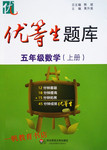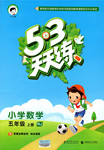题目内容
In modern society there is a great deal of argument about competition. Some value it highly, for they believe that it is helpful for social progress and richness, others say that competition is bad; and that it sets one person against another and leads to unfriendly relationship between people.
I have taught many children who held the belief(看法) that their self – worth came from how well they performed at tennis and other skills. For them, performing well and winning are often life-and-death matters. Sadly, they forget to develop many other human qualities.
However, while some seem to wish to succeed very much, others think quite the opposite. They, especially young people have suffered from competitive stress from their parents or society. Teaching these young people, I often find that they choose to fail. They seem to choose failure by not trying to win or achieve success. By not trying, they always have an excuse: “I may have lost, but it doesn’t matter because I really didn’t try.” In fact, they are worried that if they had really tried and lost, that would mean they were worth nothing.
Clearly, this belief is the same as that of the true competitors who try to prove their self – worth. Both are based on the mistaken belief that one’s self – worth come from how well one performs in comparison(比较) with others. Both are afraid of not being valued. I suggest that they can discover a new meaning in competition only when such worries and fear begin to disappear.
Opinions about competition
Main argument | Some believe that competition 1. social progress and richness, while others think competition 2. to unfriendly relationship between people. |
Children’s performances | Some children only care about 3. well and winning It is 4.that they forget to develop many other human qualities. |
Some children don’t try to win or 5. success but choose failure. They are 6. that if they had really tried and failed, it would mean they weren’t worth 7.. | |
Reason behind | They think one can 8. his self-worth only by performing better than others in competition. Both are 9. of not being valued. |
Writer’s 10. to children | Find the new meaning of competition as such worries and fear begin to disappear. |
 优等生题库系列答案
优等生题库系列答案 53天天练系列答案
53天天练系列答案任务型阅读请阅读下面短文,在短文后表格中的空白处填上适当的单词(注意:每空1个单词)。
If we agree that education is used to prepare us for life, then there is very little time to waste. So, while we can, we should teach children something really useful. Here is what our school should teach.
Politeness is a mark of civilization(文明). The sooner children learn this, the better. In any case, a lot can be achieved by a smile and good manners. Like it or not, our adults work hard for money, but we don't make an effort to teach children how to manage it. So our schools have a duty to teach them this ability from the beginning.
We're likely to accept something we are told, but that's not what educated people do. Educated people are reasonable and they look at facts. If our schools teach nothing else, they should at least teach critical(批判性的) thinking.
Children should learn to take care of their health. They should know that if they eat junk food, they will become fat and unhealthy. They should be very clear about what happens to their bodies when they drink or smoke.
All of us are part of society. We have rights and duties. We should understand what they are. We have to know a little bit of history and geography, because we need to have an environment in which to communicate with the people around us.
In a word, our schools should spend every moment they have telling this to our children: “This is life, this is what you are going to face, and this is how you deal with it."
Title | Very Useful Education |
Introduction | Education should help children 1. ready for life. |
Advice | Important things should be taught in schools. |
What to teach | How to behave 2. The basic skill of 3.money How to think in a critical way How to keep 4. The rights and duties one has in society |
5. | Children should be taught what life is and how to deal with it. |


 B.
B.  C.
C. 